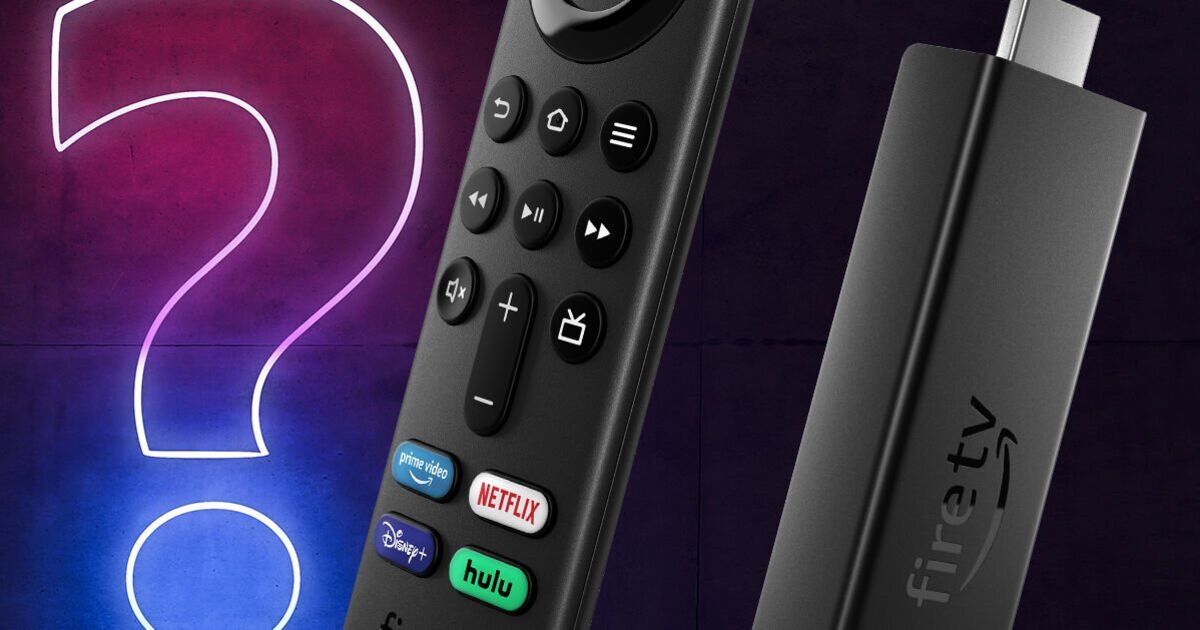Is the Fire Stick's Biggest Rival Dead? Roku's Stumble and the Streaming Stick Wars
The streaming wars are heating up, but one major player seems to be faltering. Is Roku, once considered the Amazon Fire Stick's biggest rival, on its way out? Recent financial reports and market trends suggest a significant shift in the landscape, leaving many wondering about the future of this popular streaming device. Let's dive into the details.
Roku's Recent Struggles: A Deep Dive into the Numbers
Roku's recent quarterly earnings revealed slower-than-expected growth, sending shockwaves through the tech industry. While the company still boasts a large user base, its growth trajectory has significantly flattened, raising concerns among investors. Key factors contributing to this slowdown include:
- Increased Competition: The streaming device market is incredibly crowded. Amazon Fire Stick, Google Chromecast, and Apple TV, among others, all fiercely compete for market share, creating a challenging environment for Roku.
- Advertising Revenue Slowdown: A significant portion of Roku's revenue comes from advertising. With a potential economic downturn looming and advertisers tightening their belts, this revenue stream has become less reliable.
- Hardware Sales Dip: While Roku still sells streaming sticks and devices, sales haven't been as strong as in previous years, further impacting their overall revenue.
- Platform Challenges: Competition from integrated smart TV platforms offering built-in streaming capabilities is also eating into Roku's market share. Many new TVs come equipped with Netflix, Hulu, Disney+, and other apps, minimizing the need for a separate streaming device.
Is Roku "Dead"? A More Nuanced Perspective
While Roku's recent performance has been less than stellar, declaring it "dead" might be premature. The company still possesses significant assets:
- Large User Base: Millions of users rely on the Roku platform, giving them a substantial foundation to build upon.
- Strong Content Partnerships: Roku maintains strong relationships with major content providers, ensuring access to a diverse range of streaming options.
- Potential for Innovation: Roku has the potential to innovate and adapt to the changing market. New features, partnerships, and strategic moves could help them regain momentum.
The Amazon Fire Stick's Reign: A Look at the Competition
Amazon's Fire Stick, meanwhile, continues to dominate the market. Its success is fueled by:
- Amazon Ecosystem Integration: Seamless integration with other Amazon services like Prime Video, Alexa, and Amazon Music gives it a significant advantage.
- Aggressive Pricing: Amazon often offers competitive pricing, making it an attractive option for budget-conscious consumers.
- Strong App Selection: The Fire Stick boasts a vast library of apps and streaming services.
The Future of Streaming Devices: A Shifting Landscape
The streaming device market is far from static. The rise of integrated smart TVs and the continued evolution of streaming services will continue to shape the landscape. Roku's struggles highlight the challenges faced by companies in this dynamic industry. While its future remains uncertain, its response to these challenges will determine its ability to remain a significant player in the streaming wars.
What this means for consumers:
The competition is good for consumers! It means more choices, more innovative features, and potentially better pricing on streaming devices. Keep an eye out for new features and deals from all major players in the market.
Conclusion: Is Roku's downfall inevitable? The Verdict is Still Out.
While Roku's recent struggles are undeniable, writing off the company entirely would be hasty. The streaming wars are far from over, and Roku still has the potential to adapt and compete. Only time will tell if it can regain its footing and continue to be a significant player in the streaming device market. What are your thoughts on the future of Roku? Share your opinions in the comments below!
